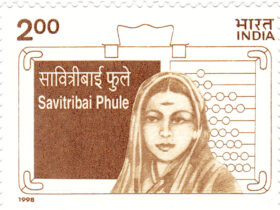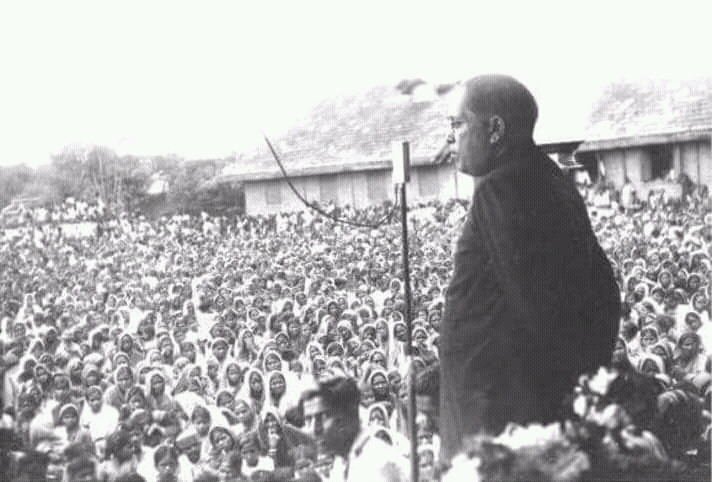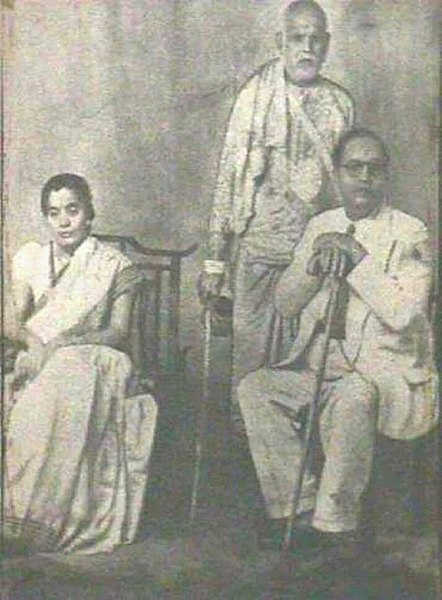
Her full name was Savitribai Jyotiba Phule (b. 3 Jan 1831 — d. 10 March 1897). She was one of the gods' gifted Indian educationalists and the wife of great social reformer Jyotiba Phule (she got married at the age of 9). Immense contribution of both husband and wife. Their work was invaluable to the Indian education system and traditional reformation. Both made people aware of unnecessary customs that were dangerous to humanity and their success.
The family of Phule had become the first to bring awareness of the education system and its importance to girls' education in the future. Savitri also joined hand-to-hand with her husband as a social reformer. (You would love reading about B. R. Ambedkar, who was the man of freedom, religious teacher, liberty lover, and believer in equality and fraternity.).
She abolished unfavorable conservative treatments of the poor based on caste and gender. And also brought widow remarriage in the country. For all this to come true, she had sacrificed her personal life. And busy achieving her goals of her life to keep awaking people for better causes.
Devotion toward forming a better, educated society and looking at the benefits of people, Mrs. Phule faced many criticisms. Even people who opposed (higher caste) disrepute and disgrace her and abused her every time possible. It was a very hard time for her when she used to start going out collecting girls for classes. She had to carry handy another piece of clothes, as people used to throw mud or cow waste on her. Or some cruel person used to pelting with stone or wooden cane (whichever they find).
Poor were becoming more poor
It was really difficult for Savitri to find a girl to get to school and convince their parents in those days. Women were hardly allowed to go out of the house, and education was so far from their reach. The reason behind their illiteracy was a simple, well-educated family becoming pawnbrokers.
And used to give them loans, and upon not being able to meet the deadlines for returning the money. Pawnbrokers (moneylenders) used to swallow their farms, gold, or auction houses. Those people are mostly marginalized and illiterate. The mission of the Phule family was very difficult and unbearable, but both worked hard for the nation.
Savitri was considered the first woman student (educated) of Jyotiba Phule in India and became a teacher who had started teaching girls. When Jyotiba and Savitri moved out of their ancestral house (due to facing a lot of criticism), they went to Pune and started living with a Muslim family (Usman Sheikh, a close friend of Jyotiba).
The family became very close with each other, and colleague Fatima Begum Sheikh (sister of Usman Sheikh and first Muslim woman teacher of modern India) became very close to Savitribai (both graduated together). In mid-1800s, Phule family first opened the schools for girls at Bhidewada in Pune city in 1848
Also read Jyotiba Phule: “Lack of Education Leads to Lag in Everything,” the true man of society, reformer, and origin of the Indian education system for girls. A great thinker and seeker of social justice. Progressive participation in the eradication of untouchables and anti-caste system.
Be self-reliant, be industrious
Work, gather wisdom and riches,
All gets lost without knowledge
We become animal without wisdom,
Sit idle no more, go, get education
End misery of the oppressed and forsaken,
You’ve got a golden chance to learn
So learn and break the chains of caste.
Throw away the Brahman’s scriptures fast.
— Go get education by Savitri Phule
Despite her career as educationalist and social reformer, Savitri was a Marathi writer and poet.
Poem: “The Greatest Wealth” by Savitribai Phule
Early in the morning,
Perform your ambulation,
Having become clean and tidy,
Pay your respects to parents and elders.
Remembering the name of God,
Immerse yourself in studies,
Waste not these precious days,
by insisting on going home.
Study hard, get educated,
Treat knowledge as your God,
Diligently take advantage of it,
Concentrating with all your heart.
Knowledge is wealth,
Greater than all riches,
Wise is considered he,
Who acquires it.
Savitribai Phule
Also read: “No Man Or Woman Should Depend Upon Another.” The first Marathi woman, Dr. Anandi Gopal Joshi from the Bombay Presidency, graduated in medical science in 1887 from the United States. Support and inspiration for working women is just a click away. Join the conversation at WorkingWomen.in, a platform dedicated to challenges, success stories, and empowerment in the workplace.






